Best gaming CPU 2024: top AMD and Intel processors for your next build
From great budget picks to the fastest flagship options.
Choosing the best gaming CPU for your build is a defining part of the PC building experience, and alongside the graphics card is one of the most critical components that determines its ultimate performance. With that said, the CPU market is in a confusing state for casual buyers, with multiple generations in play and great-sounding options available from both AMD and Intel.
With this in mind, we've formulated this guide to the best gaming CPUs money can buy today, based on our own testing, current prices and critical reviews from other publications. Whether you're a fan of Team Red or Team Blue, we've got you covered with recommendations from the budget and value-oriented categories right up to each company's high-end and flagship options.
Click the links below to jump right into the category you're most interested in, or scroll on for our recommendations in full. We've chosen an AMD and Intel option for each price bracket, with a focus on gaming performance and full system build costs plus other considerations.
Best gaming CPU 2024
- Best budget AMD processor: AMD Ryzen 5 5600
- Best budget Intel processor: Intel Core i3 14100F
- Best value AMD processor: AMD Ryzen 7 5700X3D
- Best value Intel processor: Intel Core i5 14400F
- Best high-end AMD processor: AMD Ryzen 7 9800X3D
- Best high-end Intel processor: Intel Core i7 14700KF
- Best AMD processor for content creation: AMD Ryzen 9 9950X
- Best Intel processor for content creation: Intel Core Ultra 285K
Best budget AMD processor: AMD Ryzen 5 5600
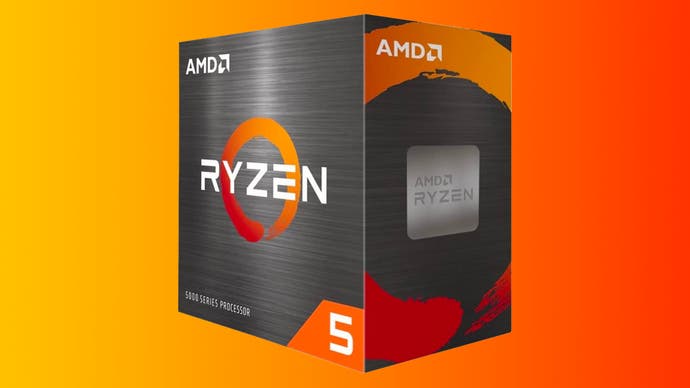
The £110/$120 Ryzen 5 5600 is the cheapest Ryzen 5000 processor, and therefore is the most affordable way to get the excellent single-core performance that defined this series of CPUs. It's noticeably faster in many games than earlier Ryzen designs, so it makes a great upgrade for folks still using popular older processors like the Ryzen 7 1700X, Ryzen 5 2600 or Ryzen 7 3700X.
Compared to the more expensive Ryzen 5 5600X, the 5600 has a 200MHz deficit in terms of its rated core clocks - a tiny margin that is more or less erased due to how Ryzen processors boost until they hit thermal or power limits. This means that the two CPUs offer basically identical performance, within two or three percentage points, so just take whichever is cheaper.
Elsewhere, the six-core and 12-thread design allows you to do things like recording video or running background applications while gaming. Higher core counts are helpful for more strenuous content creation tasks, like video transcoding or 3D rendering, but for most people this design is more than sufficient.
In terms of upgrade options, you could later replace the 5600 with the 5700X3D or 5800X3D for significantly better gaming performance, or something like the 5900X or 5950X if content creation becomes more of a focus.
To get an idea of the 5600's performance, check out our Ryzen 5 5600X review.
Best budget Intel processor: Intel Core i3 14100F
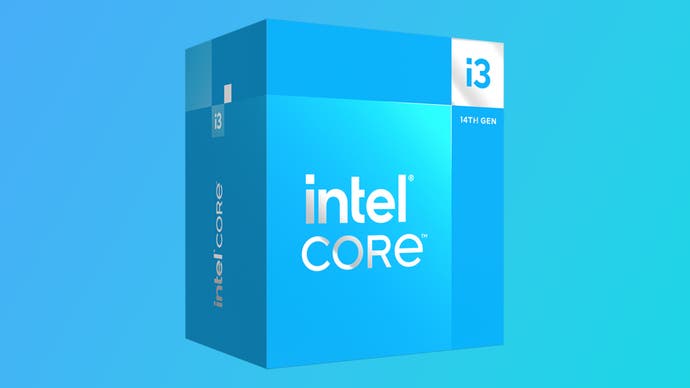
The £70/$90 Core i3 14100F is a surprisingly fast entry-level processor, which gives full access to modern components like PCIe 5.0 SSDs and DDR5 RAM whilst also costing less than any other option on this list. Its quad-core design even manages to outperform the older mid-range value heroes in gaming, like the Core i5 11600K and the Ryzen 5 3600.
This power can be attributed to the big boost to single-core performance that Intel achieved with their LGA1700 designs, plus a straightforward four-core eight-thread design that eschews the P-core and E-core architecture of the higher-tier Intel processors of this generation. That ensures a consistent level of performance across a range of games and operating systems.
Going with the 14100F gives you a solid base level of performance for gaming right away, while giving you plenty of room for a meaningful upgrade later - as both cheap DDR4 motherboards or more future-looking DDR5 boards accept up to a 14900K for a massive upgrade to CPU power. Note that the similar 14100 is the same processor but with integrated graphics capability; normally this model is more expensive but it's worth checking to see if it's cheaper than the 14100F or around the same price in your region.
Best value AMD processor: AMD Ryzen 7 5700X3D
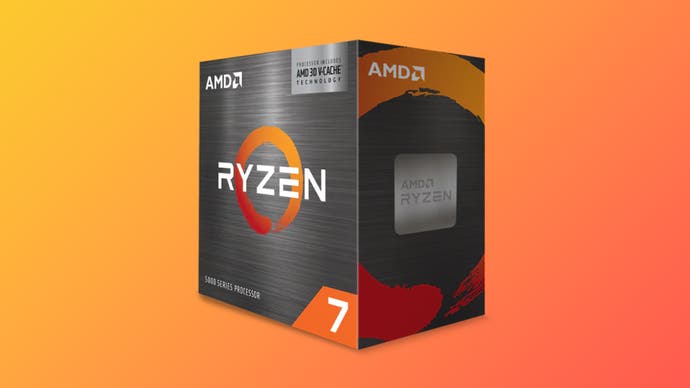
The £175/$196 Ryzen 7 5700X3D is an easy pick for best value AMD processor for gaming, especially if you get it from Aliexpress where delivery times are longer but prices are heavily reduced. Like the (now discontinued but almost identical) 5800X3D, its large 96MB L3 cache plus a sensible eight-core, 16-thread design allows it to hit incredible frame-rates compared to anything else in its generation. It even faces off favourably against AMD's flagship Ryzen 9 5950X or Intel's Core i9 12900K.
For example, in Flight Simulator 2020, it's more than 33 percent faster than the 5800X, which is the difference between a meagre 44fps average and a solid 60fps. However, that cache isn't a magic bullet in absolutely every game, with esports fare like League of Legends and CS2 running about the same on the 5800X and 5700X3D. Still, the extra cache is often transformative in CPU-limited scenarios, making the 5700X3D the ultimate gaming upgrade for the huge number of older Ryzen systems out there.
Even if you're building a new system, the 5700X3D earns its best value title through compatible DDR4 RAM and AM4 motherboards being extremely affordable these days - especially on the second-hand market.
For more detail, you can check out our Ryzen 7 5800X3D review, while our Ryzen 7 9800X3D review tests both the 5700X3D and 5800X3D in more recent games.
Best value Intel processor: Intel Core i5 14400F
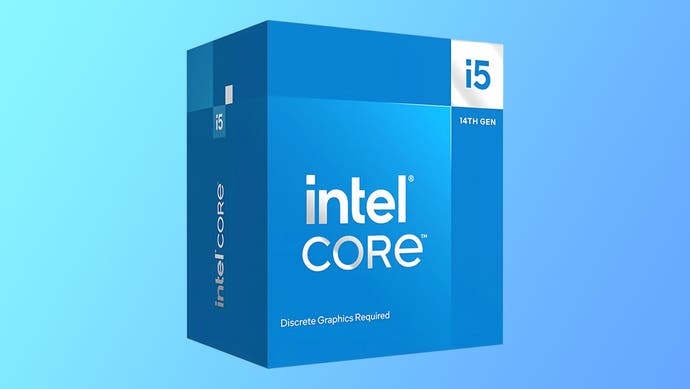
For Intel, the value sweet spot is occupied by the £148/$175 Core i5 14400F. While the 5700X3D represents the ultimate upgrade for AM4 systems, the 14400F is a more future-looking choice that allows for great performance in the short term and plenty of upgrade potential later on - plus compatibility with modern PCIe 5.0 SSDs.
With 10 cores, including six performance cores and four efficiency cores, the 14400F is a better choice than the 5700X3D for content creation and performs admirably in gaming scenarios too. Frame-rates in CPU-limited games at 1080p are in line with previous gen Core i7 models, while at 1440p or 4K you'd expect the GPU to be the bottle-neck in most titles.
As with other 14th-gen Intel parts, you have the choice between a DDR4 and DDR5 motherboard, with DDR4 RAM offering slightly lower prices and DDR5 boasting a small speed boost and a more future-proof design. With DDR5 RAM kits now relatively affordable, I'd be tempted to go with the latter, but both are viable options.
Best high end AMD processor: AMD Ryzen 7 9800X3D
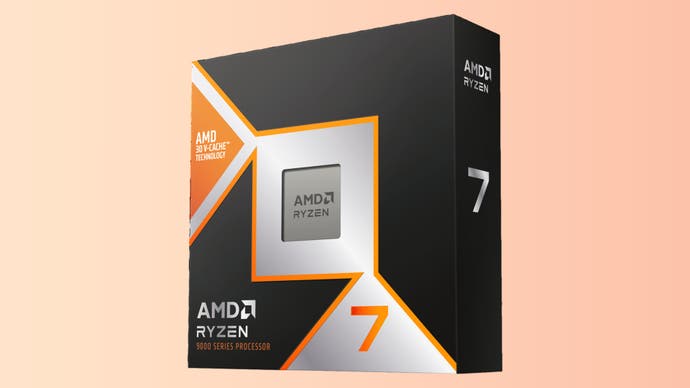
Let's keep this simple: the £449/$479 Ryzen 7 9800X3D is the fastest CPU for gaming we've ever tested, knocking the Core i9 14900K and Core Ultra 9 285K into a cocked hat.
That's nothing new - we said the same thing about the 7800X3D, in fact, which remains another strong choice. However, the 9800X3D can be significantly faster than the 7800X3D in some games - including up to 25 percent faster in the most CPU-limited scenarios - and the new chip also features better all-core content creation performance and better thermals while working in exactly the same motherboards.
The 9800X3D, like other Ryzen AM5 processors, requires DDR5 RAM and a 600- or 800-series motherboard. We recommend sticking with DDR5-6000 RAM and a X670E, X670 or B650E motherboard, as the newer X870E models don't offer any significant improvements and cost much more.
We have a full 11-game performance break-down in our Ryzen 7 9800X3D review, including tests at 1080p to 4K, plus power efficiency, RAM scaling and content creation benchmarks.
Best high end Intel processor: Intel Core i7-14700KF
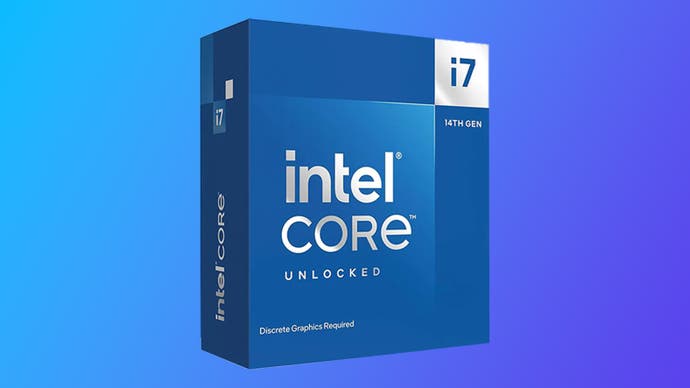
The £315/$330 Core i7 14700KF is our high-end pick for Intel, delivering around 96 to 99 percent of the 14900K's gaming performance at 75 percent of the price. That's a winning formula that makes it hard to choose the 14900K for a gaming-focused build.
The 14700KF comes with 20 cores, including eight performance cores and 12 efficiency cores, making up 28 threads, and a boost clock of up to 5.6GHz, making it a powerful choice within its price range.
It's also the first overclockable Intel chip we've recommended in this list, which allows you to tweak out a bit of extra performance. The chip runs slightly cooler than the 14900K, but still requires a robust cooling solution - ideally a tower air cooler or 240mm+ AiO.
As with other 12th/13th/14th-gen Intel options, both DDR4 and DDR5 motherboards are supported, but as you're opting for a high-end option then DDR5 is the obvious choice given its measurable edge in our testing for 1080p gaming.
Best AMD processor for content creation: AMD Ryzen 9 9950X
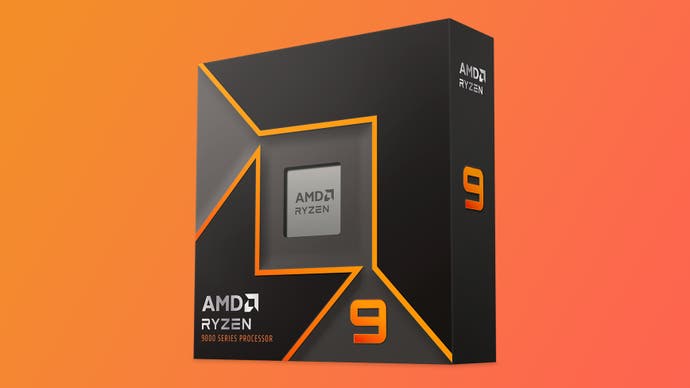
The £563/$585 Ryzen 9 9950X is a content creation powerhouse, giving a Threadripper-adjacent 16 cores and 32 threads boosting up to 5.7GHz for some outstanding performance in any task that can be run in parallel - from compiling code to rendering 3D scenes or transcoding video files.
The 9950X is also extremely efficient compared to Intel's 14900K and even the newer Core Ultra 9 285K, delivering around 28 percent better performance in a Handbrake H.265 transcode test than the 14900K while drawing significantly less from the wall. The gen-on-gen performance uplift here is more slight - just eight percent over the 7950X - so both can be good options depending on pricing.
Being the top of the line chip in AMD's range, it's no surprise that the 9950X also performs excellently in gaming - if not quite up to the same level as the 7800X3D and 9800X3D. We found it was 13 percent faster in Baldur's Gate 3 than the Core Ultra 9 285K, and a few percentage points faster than the 14900K in F1 24.
Our Ryzen 9 9950X review delivers the full details on gaming and content creation performance, though performance under Windows 24H2 improved substantially - so the more recent Ryzen 7 9800X3D review is worth checking first.
Best Intel processor for content creation: Intel Core Ultra 9 285K
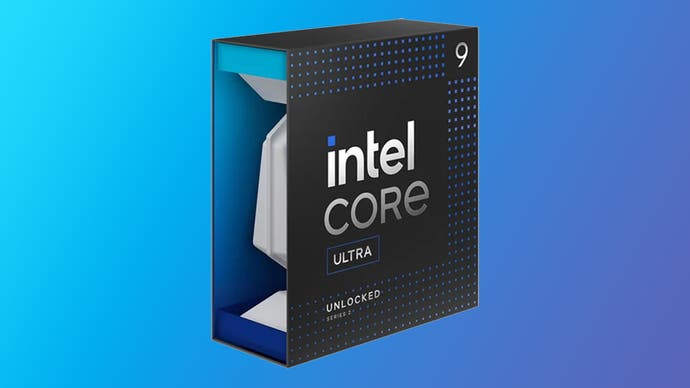
The £569/$629 Core Ultra 9 285K is the obvious pick for our final Team Blue category, thanks to offering better performance than the 14900K while drawing less power and operating significantly cooler.
The 285K and its Arrow Lake brothers operate on an entirely tile-based architecture, similar to the chiplet designs used for AMD Ryzen processors, and with the main computing die based on an advanced 3nm process. This allows for excellent power and thermal efficiency, despite a significantly lower thread count than prior generations.
The flagship 285K is a 24-core design that includes eight performance cores and 16 efficiency cores, boosting up to 5.7GHz and 4.6GHz respectively. The efficiency cores are much higher clocked than in the 14900K, and it's this that makes the difference when it comes to all-core workloads like 3D modelling or video transcoding. In fact, in our Handbrake video test, we found it was 14 percent faster than the 14900K while drawing more than 100W less power!
It may not be as impressive for gaming as AMD's more specialised lineup of X3D processors, but the Core Ultra 9 is still a powerful performer in some games like Starfield, Dragon's Dogma 2 and Forza Horizon 5 - and I suspect that more performance in other titles is waiting to be unlocked by a BIOS update, chipset revision or improvements to Windows.
You can refer to our Core i9 285K review for more performance data and additional information about the new architecture.
With that, our recommendations come to an end. I hope there's enough there to give you some food for thought for which CPU is going to be the best for you to choose for your next build, or to an upgrade an existing one.
Of course, we're always on the lookout for some of the best deals we can find on all manner of tech, including CPUs, and to keep informed with those, you'll want to follow @dealsfoundry on Twitter and check out the deals sections at both Eurogamer and our sister site Rock Paper Shotgun for PC tech deals as we find them.

